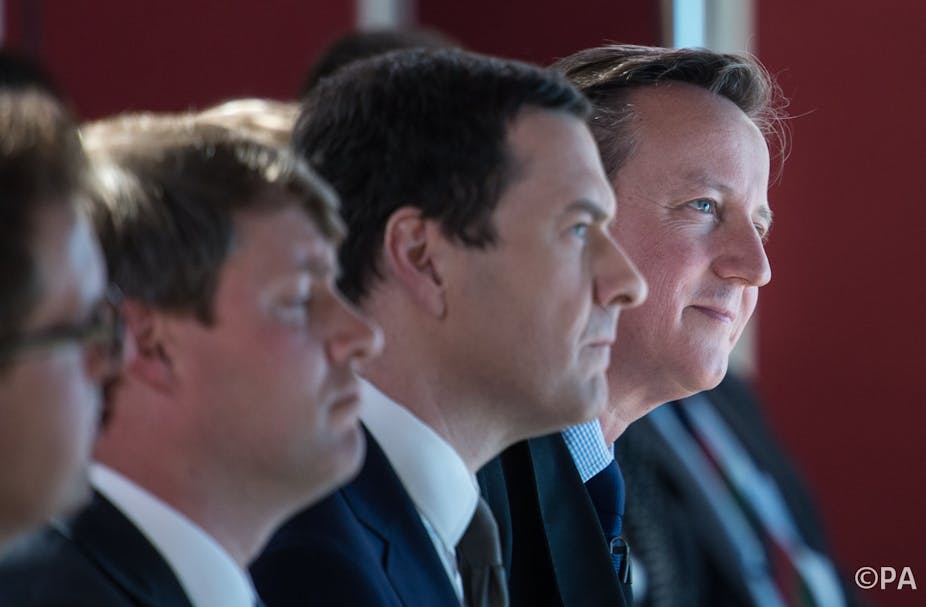Over the past five years of coalition government, most major economic policies have been driven by the Conservatives. Only a few changes – such as increasing the point at which income tax is paid – have come from the Liberal Democrats. So, when it comes to setting out plans for the next five years, the Conservatives are best placed to know the true state of the nation’s finances.
With this manifesto, the party could have set out a clear, honest, economic roadmap. It is disappointing that it hasn’t done so. This is probably because many voters would not like the answers, but it leaves the party’s key economic polices looking random, and lacking a coherent strategy.
Ultimately, any government has budget constraints. Therefore, what is spent in one area of government, results in budgetary cuts in another, or in higher taxes. The Conservatives say that they will be able to raise money via a clampdown on tax avoidance and efficiency gains across departments. Sadly, both of these holy grails of government are almost impossible to achieve, and never generate the the revenues governments think they will.
Some of the party’s key policies, such as the Northern Powerhouse, or investing £100 billion in UK infrastructure, are sensible. There is a real need to balance the economy away from London and the South East, and to upgrade much of the Victorian infrastructure that the UK still runs on.
But how this is paid for, given that pensioners have been protected with the triple-lock, the 40p rate of income tax will not kick in until someone is earning over £50,000, and income tax, VAT, and National Insurance are to be fixed at their current levels, remains to be seen.
Fractured fundamentals
One major issue that has occurred over this parliament, and looks set to continue over the next, is the fracturing of some of the fundamentals of tax policy. In tax, the idea is to capture flows of revenue. But an increasing number of flows are being removed from tax, and this is particularly true of wealth.
For instance, one of The Conservatives’ key proposals is to increase the inheritance tax threshold to £1 million. But this is a policy which benefits only a handful of people. The average UK house price is £286,000; as a result, with the current combined threshold sitting at £650,000, the vast majority of people will clearly not pay inheritance tax on their estates. However, the government has also set pension pots outside of inheritance as well. As a result, there are going to be some very large inter-generational wealth flows for a very select few that are simply missed, which lowers tax revenues.
EU uncertainty
One final issue that has dogged the Conservative party for decades is that of Europe. The fact that an “in/out” referendum is going to be on the table is a major economic issue. The relative costs and benefits of EU membership are hugely complex. But the promise of a referendum adds a level of uncertainty to the UK economy, which it can ill afford. The UK economy has some “green shoots” but many do not feel better off, even if the data suggests they are.
Given the need for deficit reduction, the huge debt overhang that exists in the private sector, the need for increasing wages, and to ensure people feel better off; increasing uncertainty is not good for business and growth.
All manifestos are written to get political parties elected. But the extent to which this motivation pervades the Conservative’s manifesto is concerning. So, while many of the “benefits” of a Conservative government have been clearly set out, the costs and the implications for taxation, the exchequer, and the size of the state have not.
The Conversation’s Manifesto Check deploys academic expertise to scrutinise the parties’ plans.

